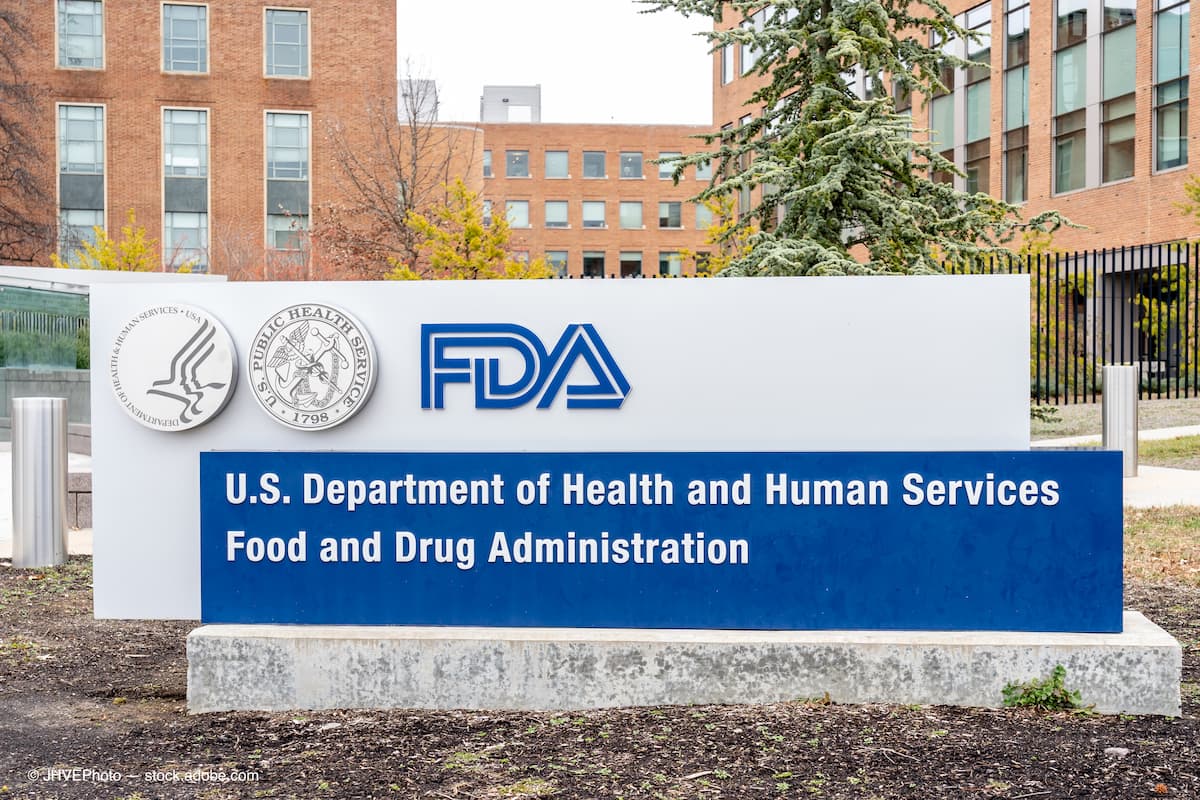US FDA issues Complete Response Letter for avacincaptad pegol (IZERVAY)
The FDA comments in the CRL relate to proposed labelling language, not safety, Astellas said in a press release.
Image credit: AdobeStock/JHVEPhoto

Astellas Pharma Inc. announced the United States Food and Drug Administration (FDA) has issued a Complete Response Letter (CRL) for avacincaptad pegol intravitreal solution (IZERVAY). In the November 15 CRL, the FDA stated it cannot approve a supplemental New Drug Application in its present form. IZERVAY had an expected Prescription Drug User Fee Act (PDUFA) date of November 19.1
In a press release, Astellas noted that the FDA comments in the CRL were not related to the safety, efficacy or risk of use for IZERVAY. The lack of approval is instead related to a statistical matter pertaining to proposed labelling language for the product.
The CRL was sent in response to a supplemental New Drug Application for IZERVAY, a treatment for geographic atrophy (GA) secondary to age-related macular degeneration (AMD), which sought to include positive 2 year data in the US Prescribing Information. This data was gathered from results of the GATHER2 Phase 3 clinical trial, which evaluated the safety and efficacy of monthly and every other month dosing.1
The company will be seeking further clarification from the FDA and plans on working with the agency to quickly address its feedback.1
“Astellas stands by the clinical profile of IZERVAY, the only FDA-approved GA treatment that consistently demonstrated statistically significant slowing of GA across 2 pivotal Phase 3 studies,” said Marci English, senior vice president of Biopharma and Ophthalmology Development for Astellas Pharma, in the release. “While this is a disappointment for patients and physicians who rely on IZERVAY for the management of a chronic, progressive disease that can lead to irreversible vision loss, Astellas is unwavering in our commitment to the ophthalmology space and will continue to work with the FDA to advance solutions for those suffering from GA.”
IZERVAY was approved by the US FDA on August 4, 2023 for the treatment of GA secondary to AMD.1
Reference:
Astellas Provides Update on IZERVAY™ (avacincaptad pegol intravitreal solution) Supplemental New Drug Application. News release. Astellas Pharma Inc. Published November 19, 2024. Accessed 19 November, 2024.
Newsletter
Want more insights like this? Subscribe to Optometry Times and get clinical pearls and practice tips delivered straight to your inbox.